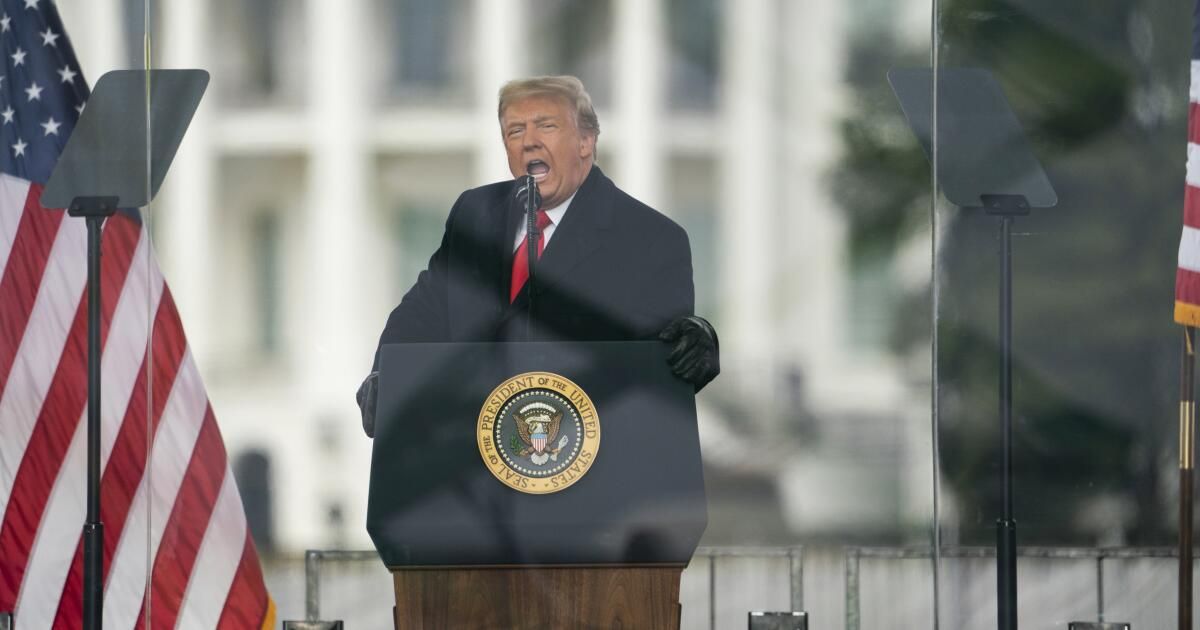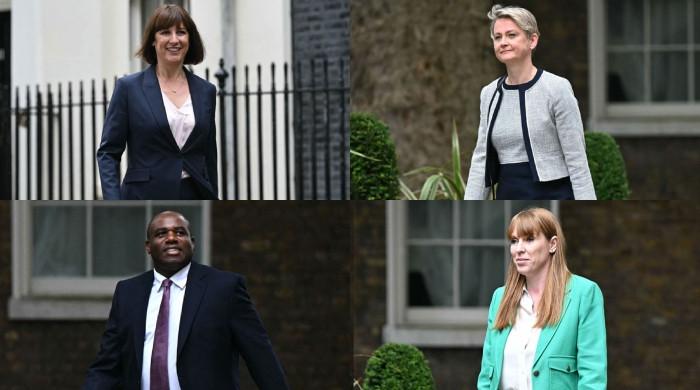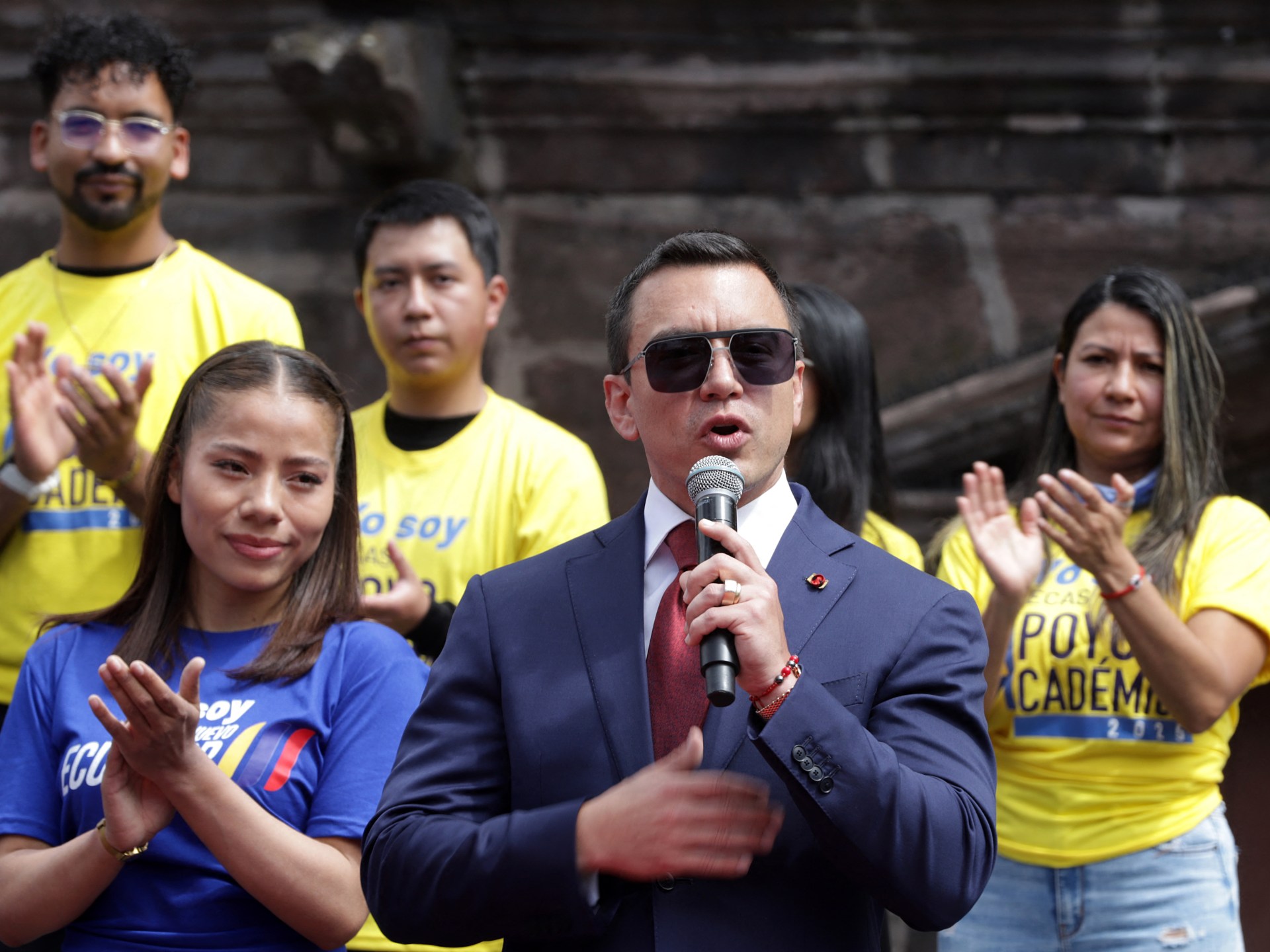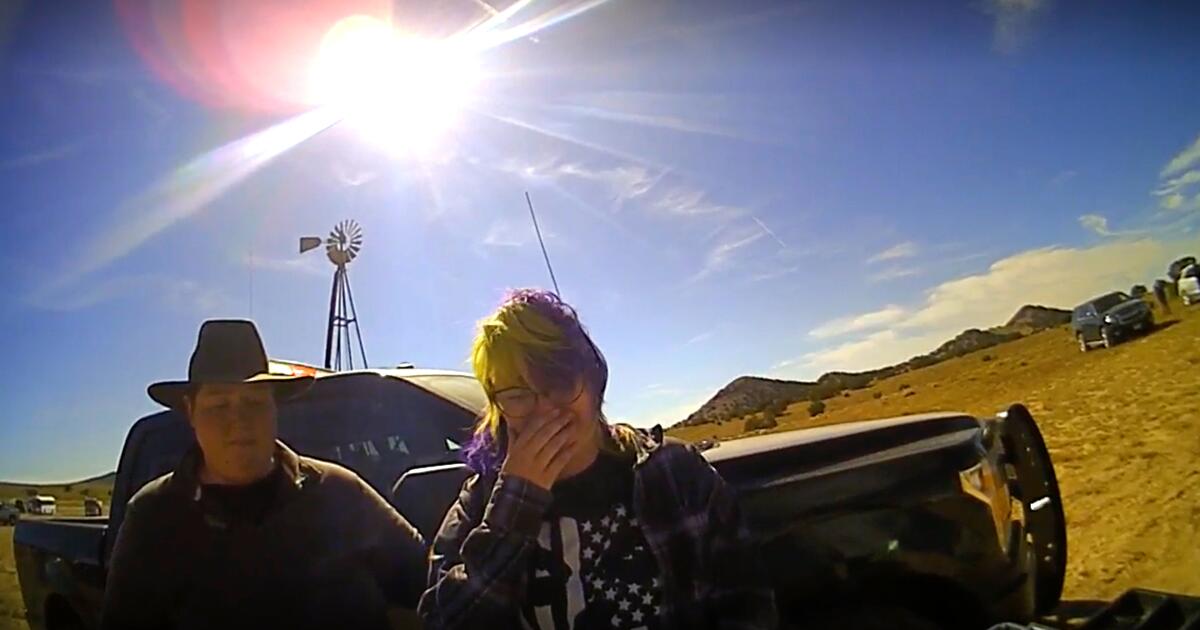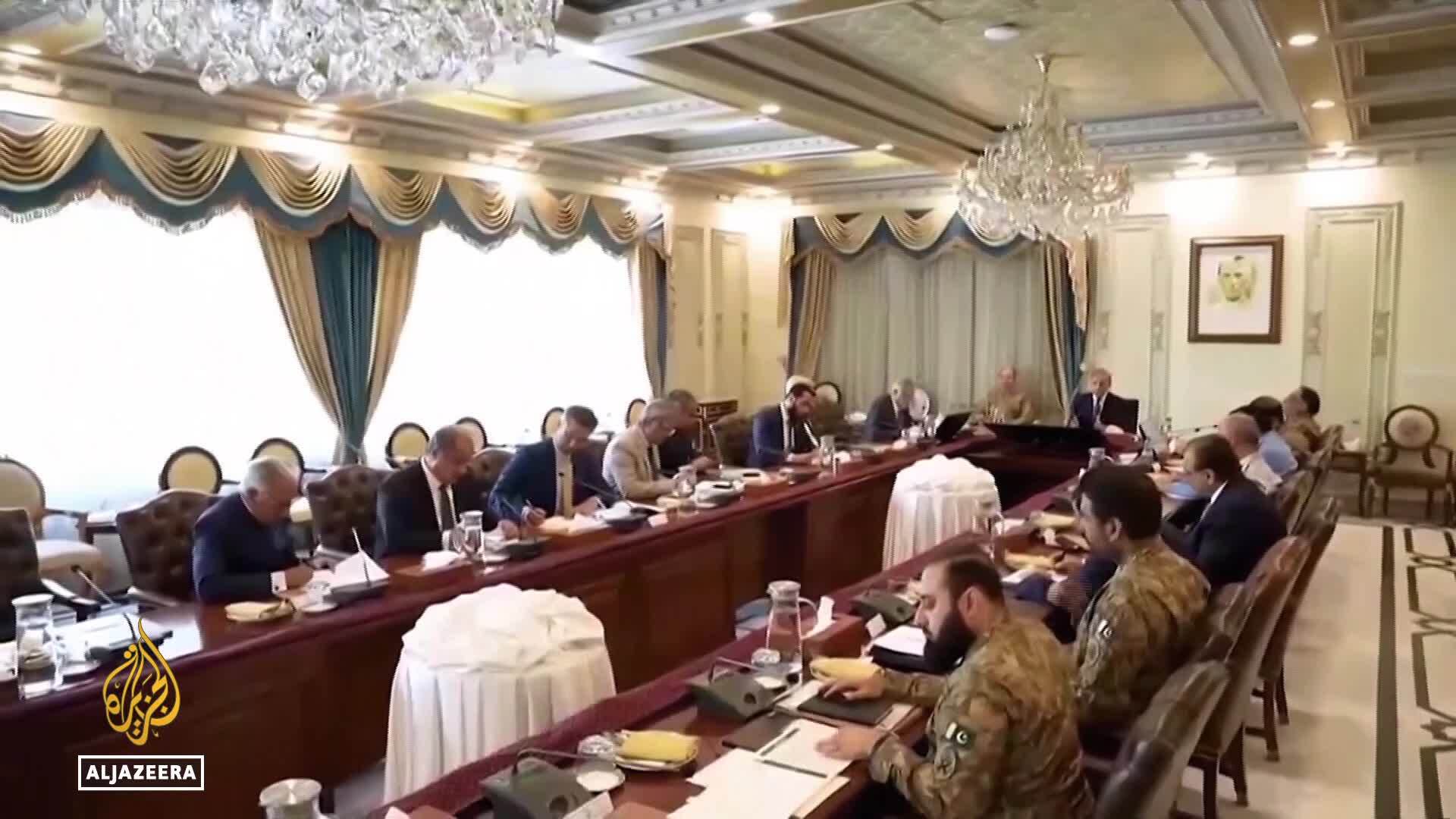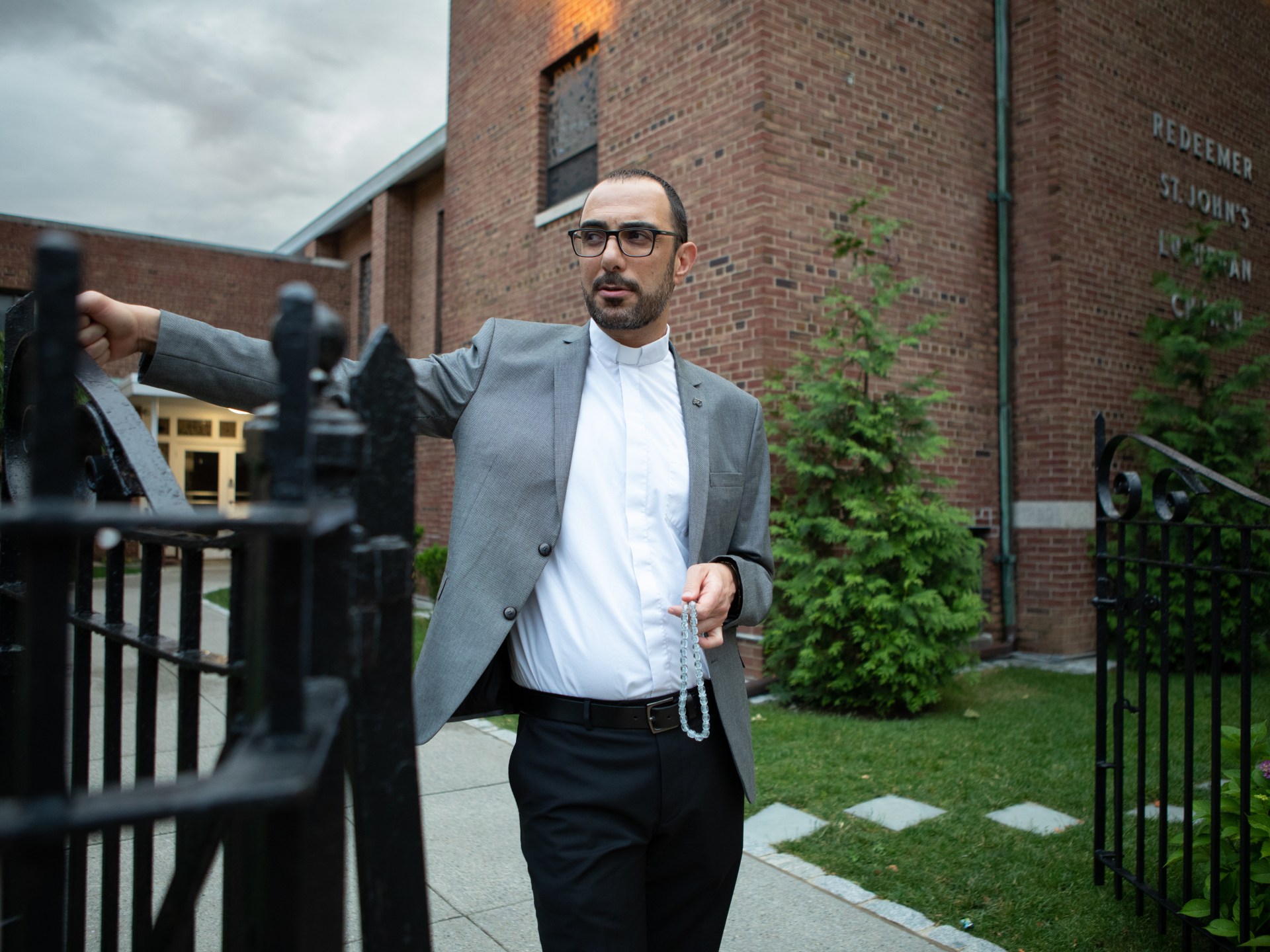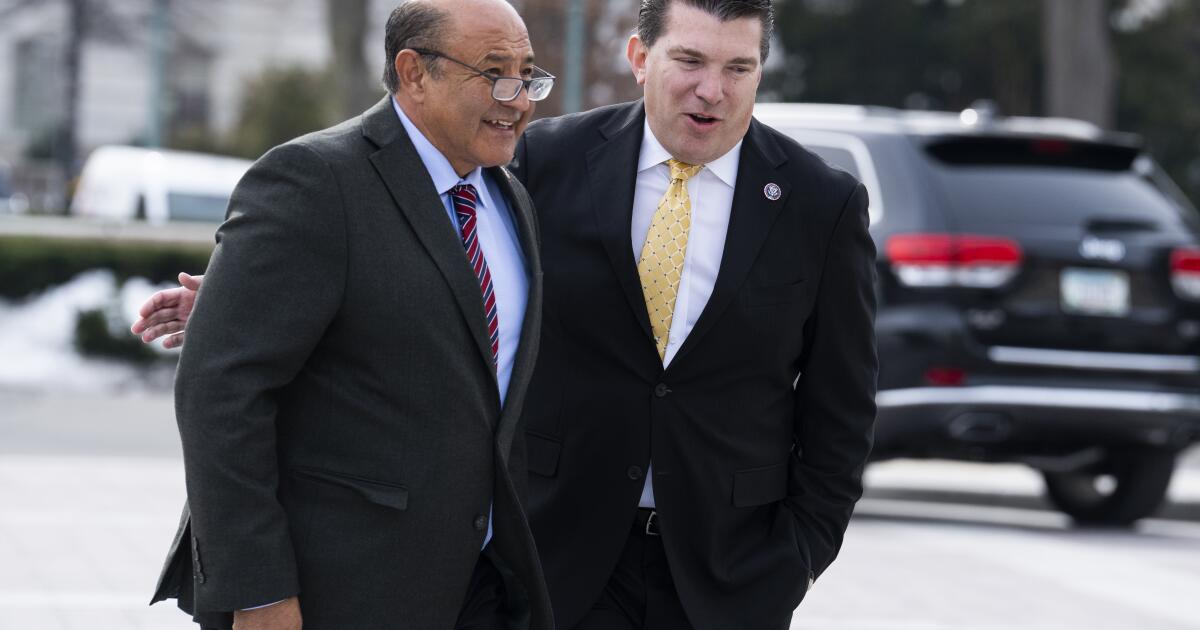The Supreme Court chose an unusual moment to declare for the first time that presidents, past and future, are immune from criminal law when it comes to the use of official or constitutional powers.
This comes just as former President Trump, who once promised to be “dictator for a day,” prepares to accept the Republican nomination to return to the White House.
Trump was also the first US chief executive to refuse to accept defeat in an election, insisting it was “stolen” and calling on thousands of his supporters to come to Washington and “fight like hell.”
The mob riot at the Capitol led the House of Representatives to impeach him, a majority of senators to vote to convict him and the Justice Department to bring criminal charges against him for conspiring to overturn the election results.
But on Monday, the Supreme Court sent the opposite message in Trump v. United States. The court’s six conservative members, all of them Republican appointees, said the Constitution has an unwritten immunity clause that protects presidents from prosecution or accountability for violating criminal laws when exercising their official powers.
Legal experts were shocked by the court's opinion and predicted dangers ahead.
“I can’t understand what they were thinking,” said Donald Ayer, a former Justice Department lawyer during the Reagan administration. “They know who Trump is. This will embolden him.”
Trump recently said he will seek “revenge” against those who have betrayed him and his supporters. Earlier this week, Trump reposted an image in which he calls former Republican Rep. Liz Cheney “guilty of treason” and says she should be tried in “televised military tribunals” for her leading role in the House committee’s Jan. 6 investigation into the Capitol attack.
Fifty years ago this week, attorney Philip Lacovara stood before the Supreme Court and urged the justices to order President Nixon to turn over the White House tapes. He won a unanimous decision, joined by three Nixon appointees.
Lacovara was taken aback by Monday's ruling, which he called the “most dangerous and unconstitutional decision” since the 19th century.
“At the time of the Watergate investigations, no Supreme Court justice, of any political affiliation, would have taken seriously a claim that the president is immune from compliance with federal criminal law. Not even Nixon in his wildest dreams imagined that any court would dignify such a claim,” he said. “This is part of a disturbing trend, as in, for example, Poland and Hungary, where conservative judges on the right favor authoritarian concepts of presidential power.”
Today’s conservatives on the Supreme Court believe in an important role for the president as chief executive. Chief Justice John G. Roberts Jr. and Justice Brett M. Kavanaugh served as White House counsel under Republican presidents, and they are skeptical of limits on the president’s powers. The other conservative members of the Supreme Court have worked in Washington for decades, and they are also wary of politically motivated investigations and prosecutions.
At the same time, however, they have sharply limited the power of executive agencies. The so-called Chevron doctrine held that judges should defer to executive agencies like the Environmental Protection Agency or the Department of Education when presidential appointees adopted new regulations. But the court struck down that doctrine last week by the same 6-3 vote that expanded the president’s power this week.
John Malcolm, senior counsel at the conservative Heritage Foundation, called the immunity ruling historic.
This is “without a doubt one of the most significant constitutional decisions [the court] “This is likely to have a larger impact on how presidents are likely to act in the future while in office,” he added.
“The idea that a Supreme Court, with justices handpicked by Trump, is ruling on a matter of this importance right before an election, just seems like shockingly bad timing beyond the merits of the decision itself, which I think are really suspect,” said Chris Whipple, who has written two books about the presidency.
Before this week, “there were already orange lights flashing about what Trump might do in a second term in terms of what he himself has said,” said William Kristol, a conservative Trump critic who served in George H.W. Bush’s White House. That includes the use of the pardon power and a number of far-right ideological proposals in the Heritage Foundation’s “Project 2025” report, which lays out a blueprint for a second Trump term.
“This simply turns the orange light into a red light,” Kristol said.
In addition to the legal changes, it creates psychological and political pressure on Republicans to carry out Trump's more extreme impulses, experts say.
“Republican senators are already inclined to support Trump, and by the way, the court says they can do so and that will be used as an argument against anyone who is critical or hesitant to follow his lead,” Kristol said.
Kristol envisions Trump scrapping post-Watergate rules that gave the Justice Department some independence, and a domino effect that would license Trump aides (inducing ideologues like Trump adviser Stephen Miller) to sue officials on Trump’s behalf.
John Bolton, Trump's former national security adviser, argues that Trump never cared about guardrails in the first place.
“He always thought he could overcome any rules anyone tried to impose on him,” Bolton said.
“Trump’s mentality is, ‘I’m going to do what I want and if somebody doesn’t like it, they can litigate,’” Bolton said.
But Trump could be talked out of doing things during his first term, Bolton said. Trump would demand every few months that former Secretary of State John F. Kerry be prosecuted for allegedly violating the Logan Act by intervening in his Iran policy, Bolton recalled. His White House counsel would ignore or obfuscate him, but the people he picks in the second term are less likely to do that, he said.
“In the second term, there will be people around him who will say, ‘Convene the grand jury,’” he said. “What happens if he declares martial law because of the invasion across the border? … I think the courts will continue to be a buffer. I hope they will.”

